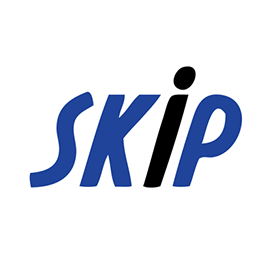非公開で販促をした場合でも先行技術になる(102(b) on sale
2010.08.27

SKIP
米国以外の国では、守秘義務を負わない第三者に対して発明を開示しない限り、自己の発明が自己の先行技術になることはありえません。
米国の”on sale”の考え方は、これとは全くことなり、守秘義務がある者に発明を開示した場合でも、その発明が自己の先行技術になりえます。
“on sale”は、102(b)に規定されており、判例によって現実の販売だけではなく、販売の申し出によってもon sale拒絶(on sale barと呼ばれます)が適用されます(2133.03(b)を参照)。また、販売の申し出の範囲は、広く解釈されており、販売の申し出を行ったが、契約が成立しなかった場合でも、「販売の申し出」となってしまし、on sale barが適用されてしまいます。
この規定は、米国内でのon saleにのみ適用されるので、日本で何をやってもon sale barが適用されることはありえないので、通常は問題になりにくいと思います。
ただ、電子メールなどを通じて米国企業と商談を行うと、on sale barが適用される可能性があると思います。
電子メールの通信記録は、訴訟になればディスカバリによって全部提出することが命じられてしまうので、on saleの証拠として使用される可能性があります。
35 U.S.C. 102 Conditions for patentability; novelty and loss of right to patent.
A person shall be entitled to a patent unless –
(b) the invention was patented or described in a printed publication in this or a foreign country or in public use or on sale in this country, more than one year prior to the date of the application for patent in the United States, or
2133.03(b) “On Sale” [R-5]
An impermissible sale has occurred if there was a definite sale, or offer to sell, more than 1 year before the effective filing date of the U.S. application and the subject matter of the sale, or offer to sell, fully anticipated the claimed invention or would have rendered the claimed invention obvious by its addition to the prior art. Ferag AG v. Quipp, Inc., 45 F.3d 1562, 1565, 33 USPQ2d 1512, 1514 (Fed. Cir. 1995). The on-sale bar of 35 U.S.C. 102(b) is triggered if the invention is both (1) the subject of a commercial offer for sale not primarily for experimental purposes and (2) ready for patenting. Pfaff v. Wells Elecs., Inc., 525 U.S. 55, 67, 48 USPQ2d 1641, 1646-47 (1998). Traditional contract law principles are applied when determining whether a commercial offer for sale has occurred. See Linear Tech. Corp. v. Micrel, Inc., 275 F.3d 1040, 1048, 61 USPQ2d 1225, 1229 (Fed. Cir. 2001), petition for cert. filed, 71 USLW 3093 (Jul. 03, 2002) (No. 02-39); Group One, Ltd. v. Hallmark Cards, Inc., 254 F.3d 1041,1047, 59 USPQ2d 1121, 1126 (Fed. Cir. 2001) (“As a general proposition, we will look to the Uniform Commercial Code (‘UCC’) to define whether . a communication or series of communications rises to the level of a commercial offer for sale.”).
II. OFFERS FOR SALE
“Only an offer which rises to the level of a commercial offer for sale, one which the other party could make into a binding contract by simple acceptance (assuming consideration), constitutes an offer for sale under §102(b).” Group One, Ltd. v. Hallmark Cards, Inc., 254 F.3d 1041,1048, 59 USPQ2d 1121, 1126 (Fed. Cir. 2001).
A. Rejected or Unreceived Offer for Sale Is Enough To Bar a Patent
Since the statute creates a bar when an invention is placed “on sale,” a mere offer to sell is sufficient commercial activity to bar a patent. In re Theis, 610 F.2d 786, 791, 204 USPQ 188, 192 (CCPA 1979). Even a rejected offer may create an on sale bar. UMC Elecs. v. United States, 816 F.2d 647, 653, 2 USPQ2d 1465, 1469 (Fed. Cir. 1987). In fact, the offer need not even be actually received by a prospective purchaser. Wende v. Horine, 225 F. 501 (7th Cir. 1915).
B. Delivery of the Offered Item Is Not Required
“It is not necessary that a sale be consummated for the bar to operate.” Buildex v. Kason Indus., Inc., 849 F.2d 1461, 1463-64, 7 USPQ2d 1325, 1327-28 (Fed. Cir. 1988) (citations omitted). See also Weatherchem Corp. v. J.L. Clark Inc., 163 F.3d 1326, 1333, 49 USPQ2d 1001, 1006-07 (Fed. Cir. 1998) (A signed purchase agreement prior to the critical date constituted a commercial offer; it was immaterial that there was no delivery of later patented caps and no exchange of money until after critical date.).
C. Seller Need Not Have the Goods “On Hand” when the Offer for Sale Is Made
Goods need not be “on hand” and transferred at the time of the sale or offer. The date of the offer for sale is the effective date of the “on sale” activity. J. A. La Porte, Inc. v. Norfolk Dredging Co., 787 F.2d 1577, 1582, 229 USPQ 435, 438 (Fed. Cir. 1986). However, the invention must be complete and “ready for patenting” (see MPEP § 2133.03(c)) before the critical date. Pfaff v. Wells Elecs., Inc. , 525 U.S. 55, 67, 119 S.Ct. 304, 311-12, 48 USPQ2d 1641, 1647 (1998). See also Micro Chemical, Inc. v. Great Plains Chemical Co., 103 F.3d 1538, 1545, 41 USPQ2d 1238, 1243 (Fed. Cir. 1997) (The on-sale bar was not triggered by an offer to sell because the inventor “was not close to completion of the invention at the time of the alleged offer and had not demonstrated a high likelihood that the invention would work for its intended purpose upon completion.”); Shatterproof Glass Corp. v. Libbey-Owens Ford Co., 758 F.2d 613, 225 USPQ 634 (Fed. Cir. 1985) (Where there was no evidence that the samples shown to the potential customers were made by the new process and apparatus, the offer to sell did not rise to the level of an on sale bar.). Compare Barmag Barmer Maschinenfabrik AG v. Murata Mach., Ltd., 731 F.2d 831, 221 USPQ 561 (Fed. Cir. 1984) (Where a “make shift” model of the inventive product was shown to the potential purchasers in conjunction with the offer to sell, the offer was enough to bar a patent under 35 U.S.C. 102(b).).
D. Material Terms of an Offer for Sale Must be Present
“[A] communication that fails to constitute a definite offer to sell the product and to include material terms is not an ‘offer’ in the contract sense.” Elan Corp., PLC v. Andrx Pharms. Inc., 366 F.3d 1336, 1341, 70 USPQ2d 1722, 1728 (Fed. Cir. 2004). The court stated that an “offer to enter into a license under a patent for future sale of the invention covered by the patent when and if it has been developed… is not an offer to sell the patented invention that constitutes an on-sale bar.” Id., 70 USPQ2d at 1726. Accordingly, the court concluded that Elan’s letter was not an offer to sell a product. In addition, the court stated that the letter lacked material terms of a commercial offer such as pricing for the product, quantities, time and place of delivery, and product specifications and that the dollar amount in the letter was not a price term for the sale of the product but rather the amount requested was to form and continue a partnership, explicitly referred to as a “licensing fee.” Id.



